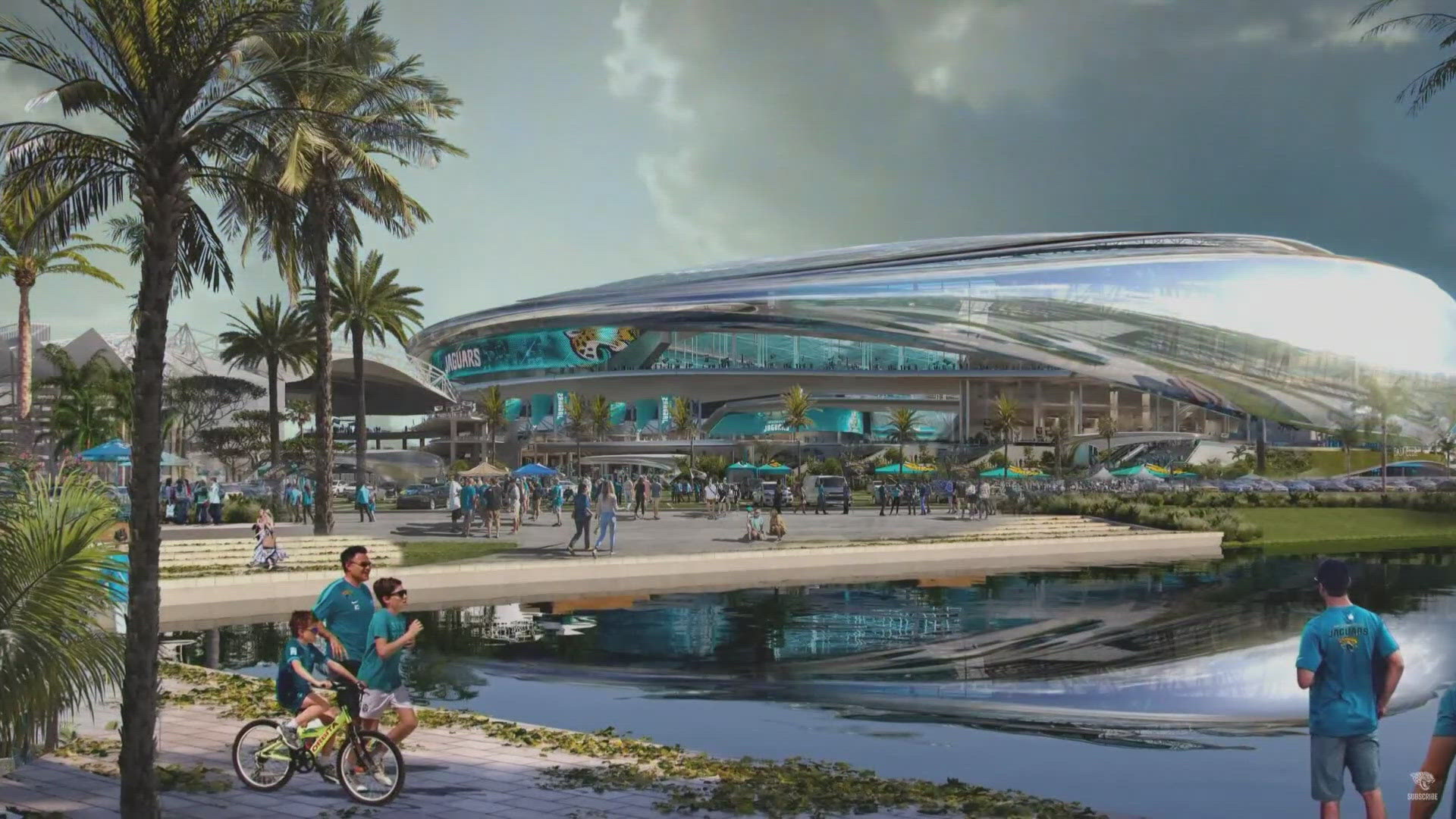JACKSONVILLE, Fla. — Jacksonville Mayor Donna Deegan presented a proposal for how the Jaguars' new Stadium of the Future will be funded Tuesday night. The council must decide if they agree with the proposal by October, which is when the deal will go to the NFL for approval. Councilman Jimmy Peluso said he expects the council to vote within two months.
Mayor Deegan made it abundantly clear that this is an opportunity for the city of Jacksonville to decide what kind of city it wants to be, saying that getting this deal done could without question make us quote the new bold city of the south.
“As a native of this city and someone who really believes in us and in this team. I think in this next 30 years, we're gonna watch the city truly blossom," Deegan said.
The Stadium of the Future construction will cost between $1.2 and 1.4 billion, which will be split 50/50 between the City of Jacksonville and the Jaguars. The overall cost will be split 55/45, which the city taking the bigger chunk of the cost. Deegan made it clear that there will be no pain to the taxpayer. Bottom line, no tax increases.
To finance its portion, the city wants to extend the Better Jacksonville Plan and its half penny sales tax to 2030, it’s projected to end in 2027.
The city would move Capital Improvement Plan, or CIP projects into the Better Jacksonville Plan to free up $600 million from the CIP budget to fund the stadium.
The finessing of funds would push back a 30-year police and fire pension fund tax, which is scheduled to start when the Better Jacksonville Plan ends.
Diamond is against the method, city council president, Ron Salem, wants to look into it more.
“Just want to get into it a bit more before I come out and say I'm supportive of that," Salem said.
The Jaguars will be responsible for any overruns.
Deegan believes the deal is fair and would benefit the city far and wide.
The city is making a $150 million investment to benefit the Eastside of Jacksonville, add workforce and affordable housing around the city, and fund completion of downtown parks, including Riverfront Plaza and Metropolitan Park.
Jacksonville city councilmember Rory Diamond is against the community investment being a part of the stadium deal.
“This deal is exactly the same as it was last year, except now we have a new $150 million of spending that has nothing to do with the stadium," Diamond said.
District councilmember, Jimmy Peluso, had a different opinion.
“For those who don't like parks, I mean, I guess they would hate this. And workforce development will touch every piece of the city," Peluso said.
It's a 30-year lease agreement, and one of the goals is to bring major sporting events, big name concerts and other attractions.
The economic impact throughout that 30-year lease is expected to bring 26 billion dollars to the city.
If the Jaguars were to leave, the city has protected itself, but they do not anticipate that happening.
Organizers behind the Florida-Georgia game support the deal. Once approved, the universities would begin negotiations beyond the 2025 agreement.
Once approved, construction would begin in February of 2025.
Completion is expected in August 2028.
While construction is ongoing, capacity would drop to around 60,000 the first year.
In 2026, it would drop down to about 40,000.
In 2027, all Jags home games would be played at either Ben Hill Griffin Stadium (The Swamp) in Gainesville or Camping World Stadium in Orlando.
When it comes to international games, there never be any fewer than seven home games.
When asked if he sees any reason the deal would not be approved by NFL owners, Jags President Mark Lamping said he doesn't see any reason they would reject it, because the city is committed to building the stadium without help from the state.

